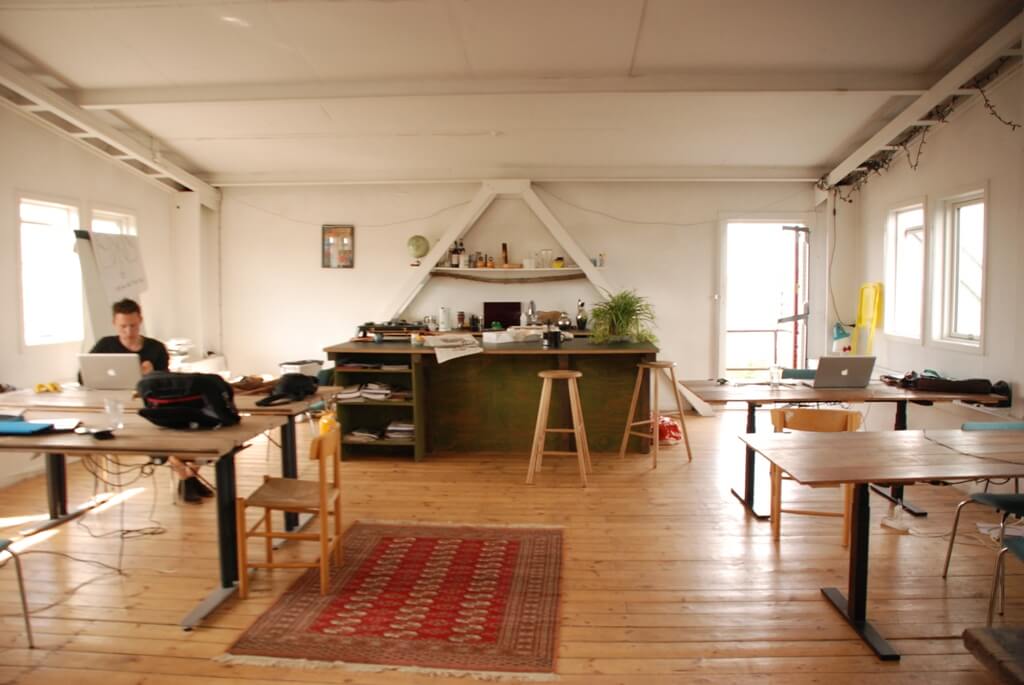|
In pursuing new knowledge and sharing our ideas Primera’s team also engages in Erasmus+ KA1 mobilities. Our trainer Tine Nagy went on teaching assignment to Denmark. In the interview below he describes his experience.
Tine, as entrepreneurship trainer you took part in Erasmus+ mobility project. You visited CPH Containers company in Denmark for your teaching assignment. What did you do there? I spent 3 wonderful weeks at startup company CPH Container. I held a workshop on Canvas Business Modeling. Founders of the company have developed a new business model for their business idea. Actually they have more ideas, but they have focused on product, called CPH Shelter, which represent an alternative housing primarily for Copenhageners, but also creative class people or tourists could be more then welcome potential users. So you cooperated with Danish team of entrepreneurs. How did those days look like? We were working in a creative hub center at Refshaleøen, it’s a small island in the Copenhagen port – or better water channel. A big building at Refshaleøen is a kind of co-working space, where different teams of entrepreneurs come to work there, usually every day from 9am to 5pm, but working hours can varies, so people have possibility also to sleep there. My work with the team was concentrated more or less into 8 working hours from 8.30 to 16.30… We had a lunch time in a sharing kitchen, where every day different people prepare something to eat for everyone. I was also on the list, so I had experience this eating culture as well 🙂 Travelling to Refshaleøen from my apartment was composed from bicycle ride and boat which is a shortcut to the island. We had few days also working on the field that means our work was concentrated to user research and different business meetings. What was the most valuable thing which you learned during your teaching assignment in Denmark? It’s not my first time in Denmark, so I have already learned a lot from Danish people and society. But If I have to answer your question, I would perhaps point out my good experience in sharing ideas among entrepreneurs and simple networking activities such as Friday BBQ for all entrepreneurial people, which means everyone brings something to eat, the “organizer” offer just a free fire place and different social games. Every Friday’s event was very friendly and full of nice networking experience. How was teaching entrepreneurship in Denmark different comparing to teaching entrepreneurship in Slovenia? Hm…I would say there is no big difference… Entrepreneurial people are actually the population that doesn’t have a national segmentation… I mean working with people who have entrepreneurial thinking is similar everywhere… Perhaps my experience could be different If I had a teaching experience in Danish public sector…who knows 🙂 How did the mobility experience impact on your further work as entrepreneurship trainer? First of all I would like to point out networking impact… I am still in contact with founders and few weeks ago we had a business model conversation regarding their kickoff event in August where they will present (together with partners) a new product, CPH Shelter. Second, my interest in Danish start ups and good practices among Danish businesses has arisen. I check frequently what’s new on Danish market concerning startups and innovation and what is interesting also for Slovenian startups, I present those things at my workshops or at my regularly activities in co-working centers. Teaching entrepreneurship is rapidly changing lately. What is the most important focus of entrepreneurship trainers in order to be successful? It’s not a question of changing, but it’s more a discussion on how entrepreneurship moves on. Entrepreneurship can be applied at many different levels in our private or business life, so when we talk about teaching we actually have to talk about for which purposes we would like to gain knowledge on entrepreneurship. My mobility in Copenhagen was concerning start up business, where founders don’t have exact business plan, but they have just a great problem-solution plan, where is a big potential for a new business idea. So I would suggest to focus more on developing a business idea into a clear vision (with a help of different tools and methods such as Canvas business model, design thinking or similar) instead of forcing future entrepreneurs to write a detailed business plan. |
primeraWe empower teachers so they can do their job best. Categories
All
LINKSPrimera's practical handbook for writing high quality Erasmus+ mobility projects.
Pan-European Conference on Digital Education Facebook Community. Primera's FB page. Work with us on Erasmus+ KA2 projects: STEP Institute. |
Erasmus+ by Primera for teachersErasmus+ courses by Primera are dedicated to teachers who value evidence-based and practice-driven training in highly interactive international atmosphere.
OID Ljubljana: E10091479 OID Vienna: E10298896 E: [email protected] T: +386 1 320 28 43 Privacy Policy |
Navigation |
Stay tuned! |
© 2020 Skupina Primera Ltd. All rights reserved.



 RSS Feed
RSS Feed